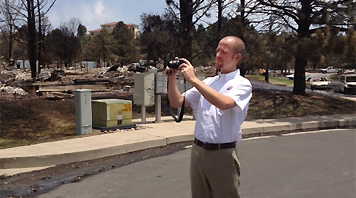|
RMIIA News Releases7951 E. Maplewood Avenue, Suite 110 Contact: September 2013 Colorado Floods: Insurance Wake-Up Call! September 9, 2014 – The September 2013 Colorado flooding was unprecedented in its damage and devastation but proved once again that the unthinkable can happen, and we need to take preparedness steps BEFORE disaster strikes. At the time of the flooding only an estimated 22,000 flood insurance policies were in force statewide, and a year later FEMA reports the number of policies at 24,000. That left the vast majority of the estimated 18,000 homes destroyed without flood insurance, and the same would be true if history repeats itself in 2014. "The heartbreak of Colorado's most damaging natural disaster is that the majority of property owners did not have flood insurance and relied on more limited federal disaster aid or government loans to recover," says Carole Walker, Executive Director of the Rocky Mountain Insurance Information Association. "This is another tragic wake-up call that flood damage to property will only be covered if you carry a separate flood insurance policy. Homeowners and renters also need a separate flood insurance policy for damage to their personal belongings." Last September's flooding should alert homeowners, renters and businesses that they need to at least consider purchasing flood coverage—even if they don't live in a flood zone since up to 20% of claims come from low to moderate risk areas. During the past 10 years, the average flood claim has amounted to over $33,000. Flood insurance is not covered under a standard homeowners or renter's insurance policy, but it can be purchased through your insurance agent or company representative. Flood insurance is covered through policies purchased and handled through FEMA's National Flood Insurance Program (NFIP). Flood insurance must be in place 30 days in advance of the flood. Your car is covered for flood damage if you purchase optional "comprehensive" coverage. Links to more information on flooding and flood insurance: DO AN ANNUAL INSURANCE CHECK-UP
KNOW WHAT IS & ISN'T COVERED
CREATE A HOME INVENTORY
For more consumer information on insurance topics, logon to www.rmiia.org. ### Rocky Mountain Insurance Information Association is a non-profit consumer information organization. Affiliated with the Insurance Information Institute, RMIIA has been serving consumers and the media since 1952. |
|
303-790-0216 • 800-355-9524 • Contact Us • Legal Notice, Disclaimer & Terms of Use
Home • About RMIIA • News Room • P&C Insurance Industry • Auto • Homeowners • Business • Catastrophes • Agent Resources • Events & Education • Brochures

